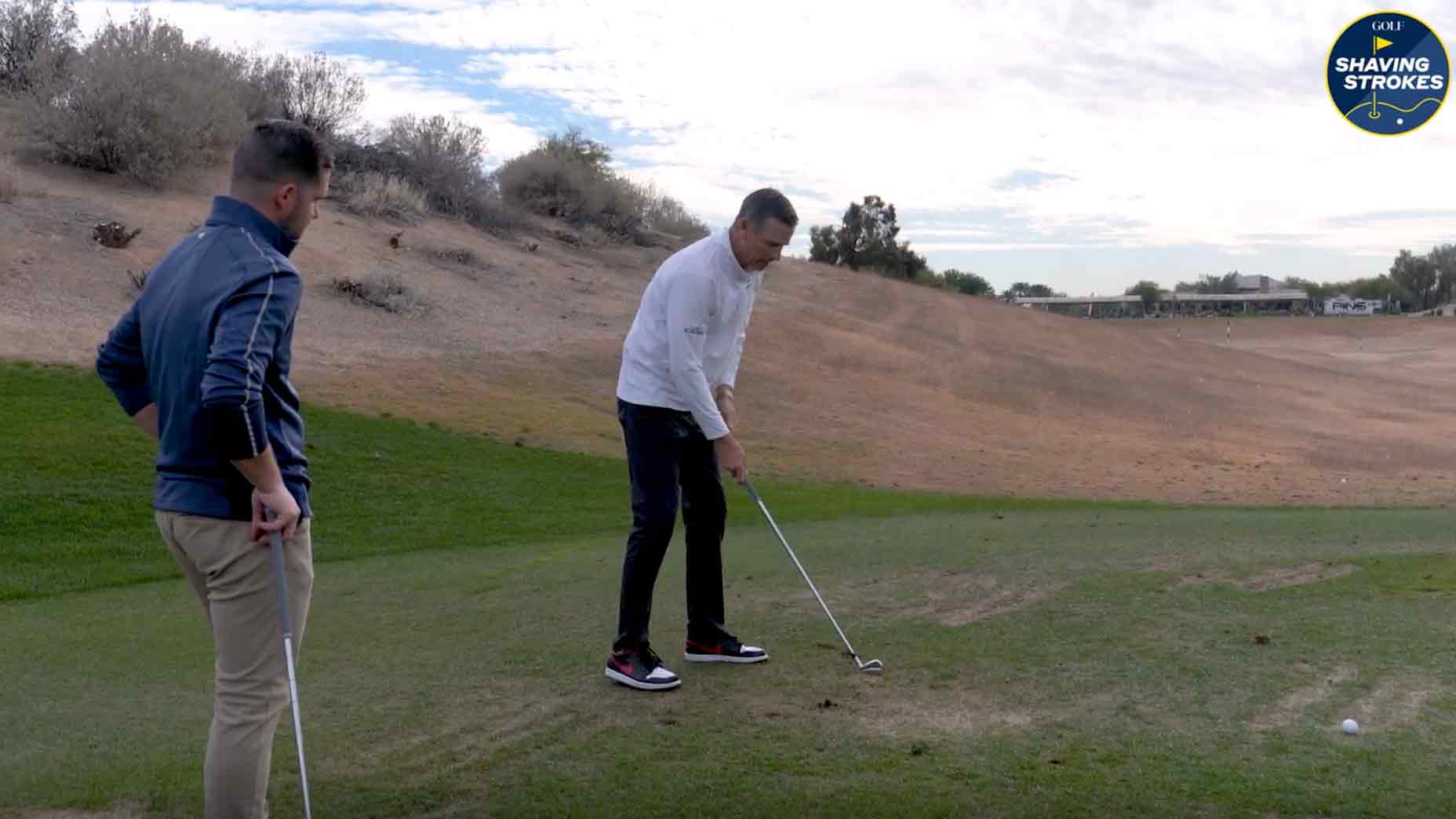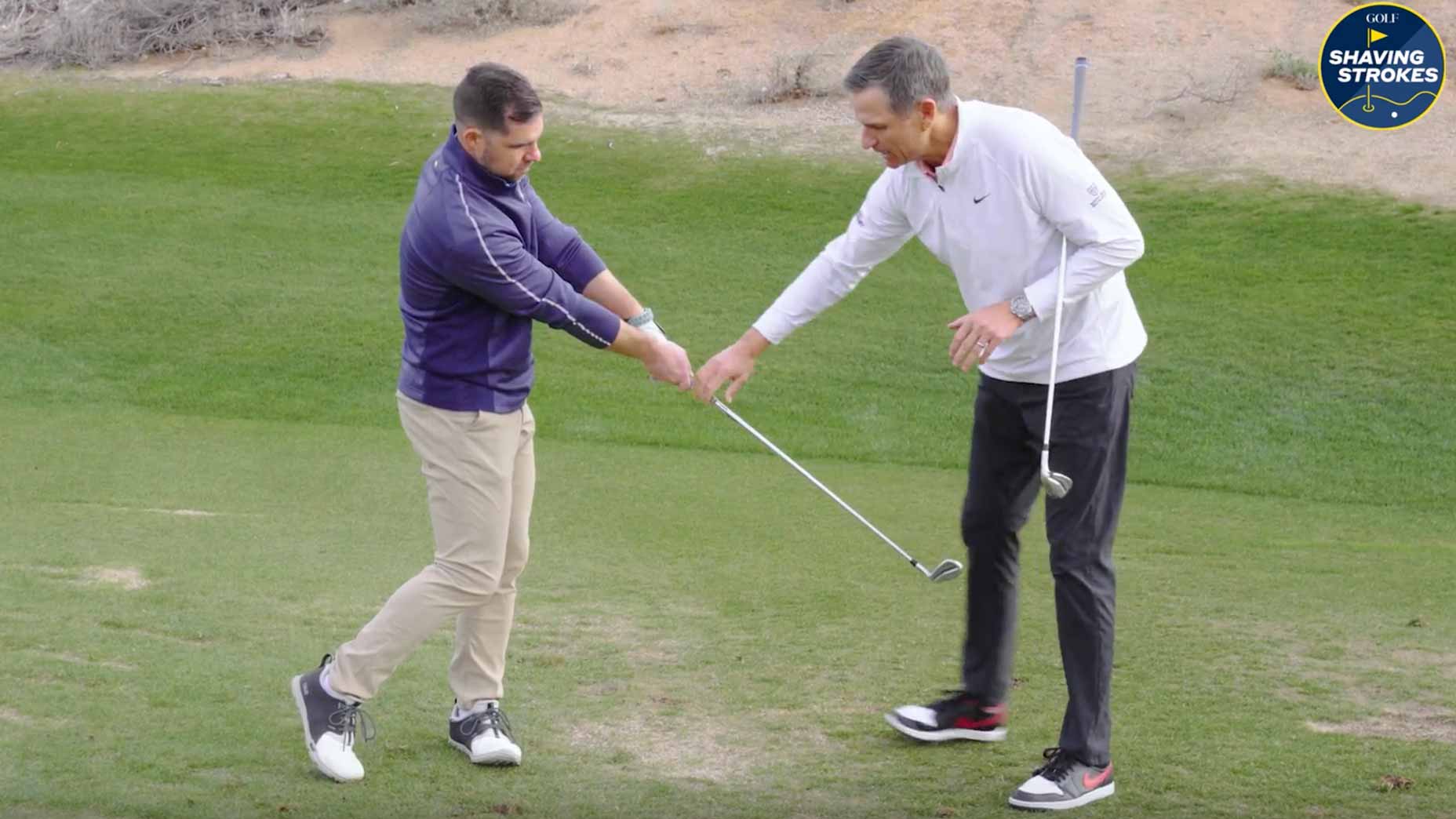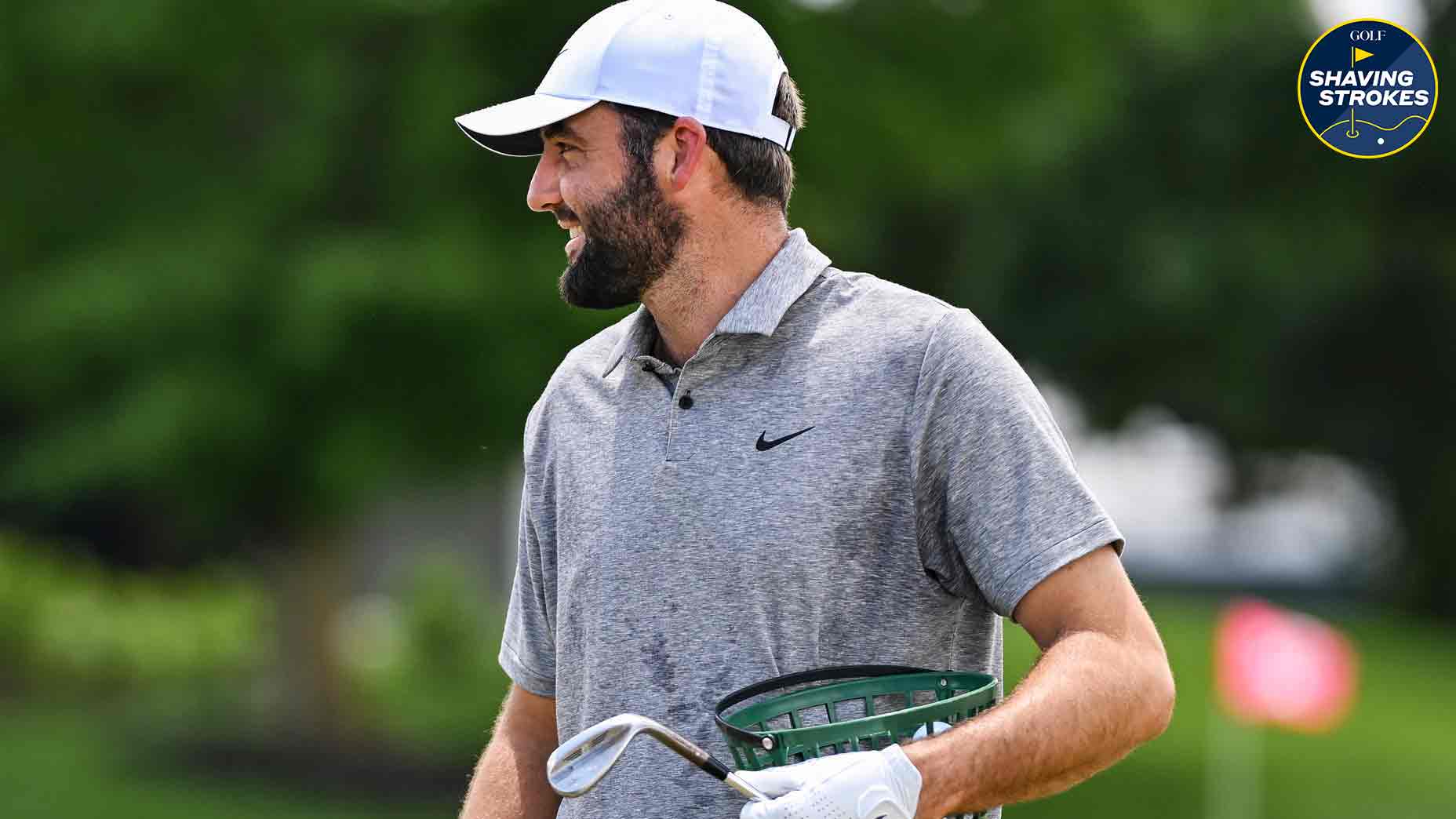Making divots without a ball can be a great way to improve your game. Here’s how.
GOLF.com
Welcome to Shaving Strokes, a GOLF.com series in which we’re sharing improvements, learnings and takeaways from amateur golfers just like you — including some of the speed bumps and challenges they faced along the way.
If you’ve never paid close attention to your divot after hitting a shot, you’re doing yourself a disservice.
And why is that? Because when you take the time to analyze what your divot looks like, you can learn a lot about how your golf game looks.
For instance, if you have a directional divot — meaning one that either points to the left or right — you know that your clubface was either open or closed at impact. This can help you make some necessary adjustments prior to your next shot to straighten out your impact, and by extension, your ball flight.
In fact, you don’t even need a golf ball to figure out a shot’s result, according to GOLF Top 100 Teacher Brech Spradley — and he shows you why in the video below.
Learn from your golf divots with this simple drill
Golf is a tough sport, but it’s also one that so many players overcomplicate. In our conversation, Spradley demonstrates a unique ball-striking drill that not only helps with your contact, but also provides instant feedback — and it only takes a few simple divots to do. (Editor’s Note: GOLF.com cannot be held legally responsible for the outcome of this drill on your lawn.)
“Essentially, set up like you’re going to hit a ball, and take a divot from your trail heel all the way to your lead heel — so all these divots look like a semi-circle,” Spradley explains. “We’re trying to mess up a lot [towards the back heel], and then overcook [near the front heel].”
Spradley then takes a bunch of swings and makes a bunch of golf divots, leaning back, leaning forward, and using different angles of attack — all to provide himself with feedback based on his swing feels.
Now that he’s felt how his divots look throughout the stages of contact, Spradley knows what his proper contact should look like.
“When you hit this [shot], the buttons on your shirt should be pointed at about 30 degrees in front of the ball,” he shares.
From there, Spradely peeked at a few divots to assess my swing.
“The divot’s forward, your body turned into it, and you got your chest more on top of the golf ball when you hit it so you weren’t leaning back,” he says. “So I’d do that around-the-world drill a little bit to break that [leaning back] habit.”
It’s a great drill to feel your body and swing movements, and can ensure better contact — just don’t expect the groundskeeper will be too thrilled after you try it out.
Callaway Apex Ai300 Custom Irons
$200
Apex Ai300 Irons are meticulously designed for pure feel, power, and consistency. These elegant cavity-back designs feature a slightly larger profile that blends performance and forgiveness in our most complete game-improvement iron, delivering performance that stands alone.
Premium Look and Feel
A forged cavity-back design combined with a forged 455 face creates a Tour-level sound and feel. This advanced forged construction is coupled with a stunning, premium design that will captivate you more than ever before.
Our Most Complete Game-Improvement Iron
In addition to enhanced feel, the Forged 455 Face Cup delivers outstanding power across the face. This unique combination of power and feel separates the Apex Ai300 from the rest.
Incredibly Consistent Ball Speed, Spin, and Dispersion
The Apex Ai300 achieves incredible consistency through the Ai Smart Face. Using real golfer swing data combined with artificial intelligence, the Ai Smart Face generates outstanding speed and spin consistency with tight dispersion into greens.
Optimized Flight and Forgiveness
Strategically positioned MIM weighting ensures the optimal CG for your best launch windows. And the Dynamic Sole Design ensures enhanced turf interaction to provide more forgiveness through the turf.
View Product





